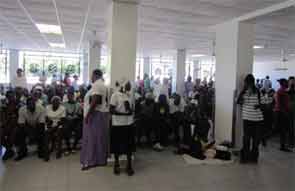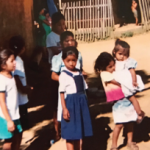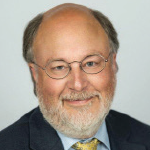Several unique aspects to the field of rheumatology present challenges in an underdeveloped country:
- In a region where the major health problems are infectious diseases, infant mortality, malnutrition and traumatic injuries, concern regarding the rheumatic disorder is not in the forefront;
- Benefits related to treatment are not usually apparent until after several months of follow up, making it difficult to demonstrate the benefits of an intervention;
- Many of the most effective treatments in rheumatology, both medical and surgical, are prohibitively expensive in a country with an average daily per capita income of about $3;
- Many rheumatologic conditions are subtle in presentation and not always recognized by either the patient or the physician;
- A well-structured system of ambulatory care involving multiple disciplines, such as orthopedics, and the opportunity to provide long-term care are required; and
- It’s probable that neither the trainees nor the majority of the senior physicians have been previously exposed to either rheumatology or a rheumatologist.
Prior to arriving in Mirebalais, I was able to review the labs available and the formulary. Of significance, none of the following were available: polarized light microscopy, cultures of any kind, all rheumatologic serologies, CRP, ESR and MRIs. The formulary included only ibuprofen, prednisolone, depository methylprednisolone, IV dexamethasone and chloroquine with regard to medications used by rheumatologists. Specifically, neither methotrexate nor allopurinol was available. Although initially stunned, I soon realized the situation was not entirely dissimilar to what was available to me when I first became interested in rheumatology in the 1960s, and I had a Back to the Future moment.

My Role
The unique opportunities inherent in bedside teaching are the ability to focus on techniques, clinical judgment and decision making, while creating a supportive personal relationship with the trainee. One must assume that facts can always be obtained in books. Although not viewed as a procedure-oriented specialty, rheumatology is highly dependent on both the skills of physical exam and history taking.
The ability to perform a thorough and accurate musculoskeletal and neurological exam is often absent in the best of U.S. medical graduates and seemed virtually absent in the Haitian medical residents. This was a major focus of my efforts and was taught in small groups to all the medicine and pediatric residents in addition to the primary care attendings, plus all of the physical therapy students. Lectures were given every day, focusing on history and physical exam, the use of those labs available in Mirebalais, the distinction between inflammatory and noninflammatory conditions, principles in the treatment of inflammatory conditions and a review of the more common clinical conditions. In addition, patients were examined in conjunction with both trainees and senior physicians in both the inpatient and outpatient venues.


